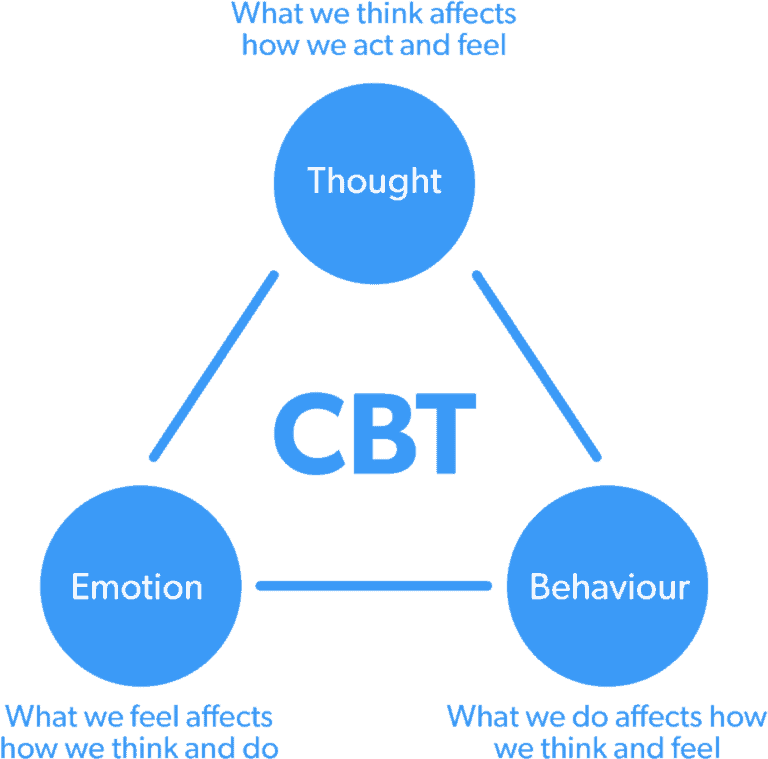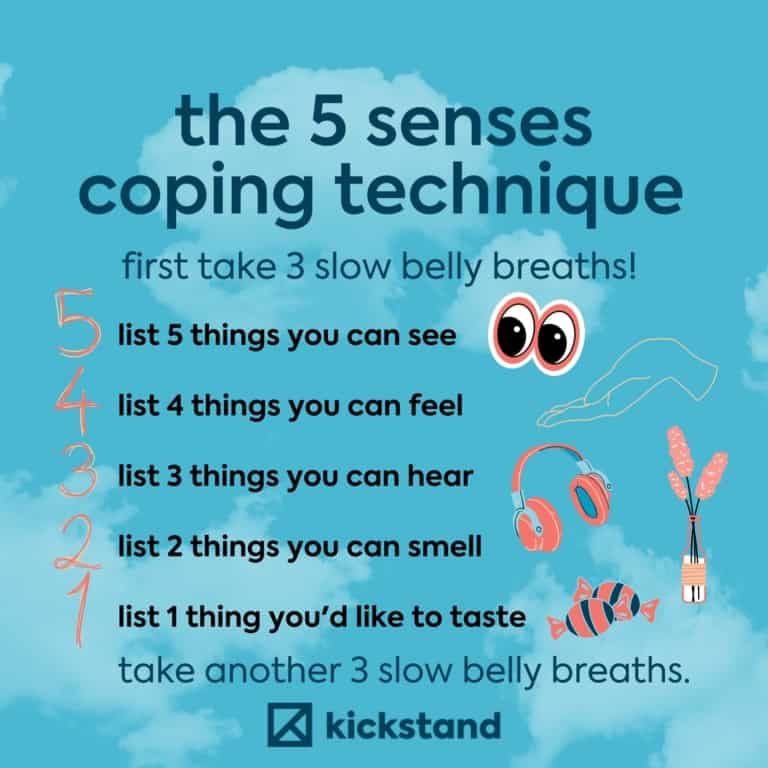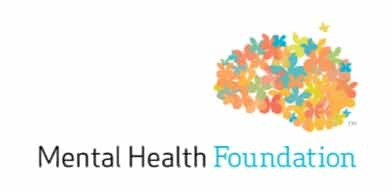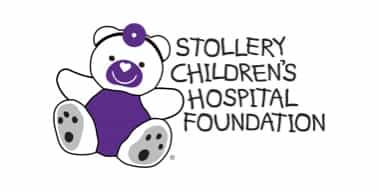We all feel worried or nervous from time to time. Young people can face all kinds of concerns that may cause worry or stress. For example, an upcoming test, attending a new school, finding somewhere to live, or starting a new job.
This feeling is called anxiety, and it is a completely normal feeling for anyone to have. In fact, nearly everyone experiences anxiety at some point. Anxiety is how our body tells us to prepare for challenges or stressful events. This can help us be more aware or alert to dangerous or new situations. Usually, this worry and fear will go away after some time.
However, when someone experiences anxiety all the time or often, it can prevent them from enjoying things they used to love or stop them from doing new things.
When to Get Help
Although anxiety is a common experience, there are times when it becomes very problematic. Here are some signs that you may need extra help.
- There is no clear reason for feeling anxious, worried, or nervous.
- When the anxious feeling keeps coming back after going away for a short while (recurrent).
- Anxious feelings don’t go away for weeks on end (persistent).
- Feelings of anxiety interfere with the ability to do the things that are normally part of a day-to-day routine.
Signs of Anxiety
Everyone is different and unique, and anxiety can look different from person to person. However, anxiety can cause changes in how your body feels, what and how you think, what you feel emotionally, and how you behave. In general, anxiety can cause you to feel excessive amounts of fear or worry about the future. Here are some common signs of anxiety.
Physical
- Increased heart rate
- Changes in breathing (faster breathing or holding your breath)
- Changes in muscle tensions (eg. tense/tight or jumpy/fidgety)
- Feeling like you cannot sit still
- Feeling exhausted or drained
- Sweating or feeling dizzy
- Shaking
- Nausea or stomach ache
- Headaches
Thoughts
- Worrying “all the time” or having worries that keep coming back (even after going away for a bit)
- Thinking that something bad is going to happen
- Being unable to control worries
- Troubles with concentrating/paying attention
- Worries that seem out of proportion
- e.g. “my friend hates me because they did not call/text right away”
- Racing thoughts that you can’t “turn off”
- Thoughts that keep you from concentrating, relaxing or enjoying everyday life
Feelings
- A general sense of uneasiness
- Extreme fear for no clear reason
- Easily irritated/annoyed or angered
- Intense ongoing fear of an object or situation
- e.g. heights, spiders, small spaces
Behaviours
- Constantly “on edge” and looking for signs that something bad might happen
- Stop doing activities you used to enjoy
- Withdrawing from friends or family
- Jumpy or easily startled
- e.g. by noises
- Avoiding certain situations due to fear
- Trouble sleeping (going to bed, waking up throughout)
- Checking behaviors
- e.g. constantly checking that you’ve locked your door, or constantly asking a friend/partner if they’re mad at you etc.
Practical Things That You Can Do
There are lots of things that you can do to manage tough feelings. It can feel hard to find the energy or motivation to do these things. Sometimes it might feel like nothing will help. Try starting with one thing you know you can do, then slowly add things in step by step. This can help you feel like you’re making progress.
It’s easier to deal with the challenges of anxiety when they’re recognized early. You can take action on your own or with support from friends, family, or professionals.
Take Care of Your Body.
Physical health is directly connected to mental health. Sleeping enough, eating nutritious foods, and exercising when possible can go a long way to feeling better.
Talk to Someone.
You may feel scared, embarrassed or ashamed about talking about your concerns. However, talking about it with someone you trust like a friend, teacher, coach or therapist may help you feel better, understand your concerns more, and seek more help if needed.
Check out this page for more information on free youth mental health services that you or a loved one can access through our virtual clinic, Kickstand Connect.
The Thought-Feeling-Behavior Triangle.
Our thoughts, feelings, and behaviors are all connected. What we think influences our feelings, and our feelings affect how we behave. So, recognizing how your thoughts impact your emotional and physical feelings of anxiety can help you understand your anxiety better.
Wanting to avoid certain situations that might cause anxiety is normal. However, simply avoiding situations can cause more anxiety in the long-run. By avoiding the triggers completely, you may not learn to overcome your fears. By facing them, you can learn that the situation is not as bad as you may believe.
CBT stands for cognitive behavioral therapy. This is a technique that you can learn to do that slows down the interactions between thoughts, feelings and behaviours. It is a process to bring attention and awareness to how one part of the triangle influences the other. By doing this, you are able to examine your automatic or unconscious thinking patterns and make changes to help improve your health and happiness.


Try Out Different Coping Strategies
- Using positive self-talk
- “I have the skills I need to cope with this situation”
- “I am strong enough to make it through this hour/minute/day/week”
- “I will put in my best effort at this moment”
- “I can learn to tolerate this”
- Breathing techniques like square/box breathing can help you confront your triggers so you can learn to not let them interfere with your life anymore
- Muscle Relaxation, sometimes called Tense-Relax
- Mindfulness strategies
- Mindful walking
- Mindful eating
- Doing activities “one mindfully”
- Various meditation strategies
- Grounding techniques
- 5 Sense grounding or 5-4-3-2-1 grounding
- Other sensory grounding
- chewing strong flavored gum, smelling essential oils or strong scents
- Intense physical activity
- like do 10 push ups, jumping jacks or squats
- Cold water!
- Run the tap on really cold, fill the sink, submerge face in cold water.
- Take frozen thing from freezer and hold to face and neck for a few seconds
- Relaxation strategies
- Listen to a Guided Imagery Scripts, try these ones from Anxiety Canada.
- Try using a CBT thought-log: by practicing recognizing your thoughts and taking time to challenge how true they are (or are not) can help you change your thinking patterns to help reduce anxiety.
It may be helpful to reduce substance use. One study found that adolescents who used cannabis frequently were more likely to develop anxiety disorders by young adulthood. Although the exact relationship between cannabis and anxiety is currently unknown, it may be related to the effects that cannabis has on a developing brain. Alcohol and drug use may feel helpful in the short term, but they can make your anxiety worse in the long-run.
Sources:
Cannabis and Anxiety and Depression in Young Adults: A Large Prospective Study – ScienceDirect
Anxiety – Foundry – (foundrybc.ca)



